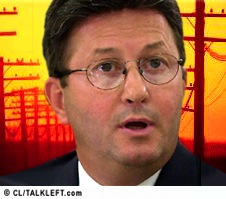“Among other things, they were barred by the trial court from calling a critical expert witness by virtue of their blatant failure to comply with basic litigation procedures.”
I didn't think there was a "blatant failure" to comply with the rules. I explain the issue here. And see the amicus brief on the issue filed by NACDL here. More importantly, considering a three judge panel of the 10th Circuit Court of Appeals sided with Nacchio on the issue (an opinion later reversed after the the court decided to reconsider the issue en banc) it's hard to see how his lawyers' position, even if wrong, amounted to gross negligence. The three judge panel found the criminal and civil rules are different and that Nacchio had complied with the criminal rule. It also said the Judge was wrong to exclude his expert's testimony without an opportunity to brief the issue or a hearing at which the defense could present evidence. The 10th Circuit en banc opinion reinstating the conviction, was decided by a 5 to 4 vote. The opinion is here. Some analysis is here. From the dissent:
The flaw in the government’s argument is that the rules of criminal procedure, unlike the rules of civil procedure, do not require a criminal defendant to establish the foundation for expert testimony through advance written submissions. Unless the criminal defendant is otherwise directed by the district court—something which did not happen here—he may establish the foundation for witness testimony by putting the witness on the stand for voir dire examination. The defendant responded properly to every motion made by the government, and nothing in the conduct of the defense can reasonably be construed as abandoning or forfeiting his right to establish the reliability of the expert evidence through testimony. It was the district judge, not defense counsel, who misunderstood the procedural rules.
I don't see the negligence argument winning. As to the over-billing, while $25 million is a lot to pay for representation, Nacchio agreed to it and could afford it. It was his decision to retain a team of out of state counsel and he knew he'd be paying for their travel expenses. The fee agreement should have specified what travel expenses are included.
On the one hand (and I don't know if this happened or not) if the team had flown out for a Friday hearing, expecting to return home for the weekend, and the Judge extended the hearing to Monday, requiring the team to stay over, they would need underwear. Should they have charged the client for it? While you could say they probably wouldn't have bought new underwear but for the judge's unexpected order to return Monday, and it was cheaper to buy underwear than fly home to New York and back to Denver on Sunday, you could also argue that when you're charging $600 or more an hour, springing for a few pair of underwear shouldn't be a burden. Same for dry-cleaning and food.
The in-house movies, on the other hand, clearly should have been deducted from the hotel bills before being expensed to Nacchio. I wonder if this wasn't an oversight by the law firm's billing staff who failed to parse the bills, separating out personal expenses from client reimbursable expenses. If so, it's the firm's fault, but it should be able able to be rectified short of a lawsuit.
Bottom line: While "I see London, I see France, But I'm not going to pay for your underpants" makes for an engaging headline, the real issue is whether Team Nacchio's stategic decisions on the expert witness issue were grossly negligent, or even negligent.
The law firm has malpractice insurance, and I suspect at some point the insurance company's lawyers will enter a settlement with Nacchio, returning some of the fees.
All of our coverage of Joe Nacchio's case is accessible here.




